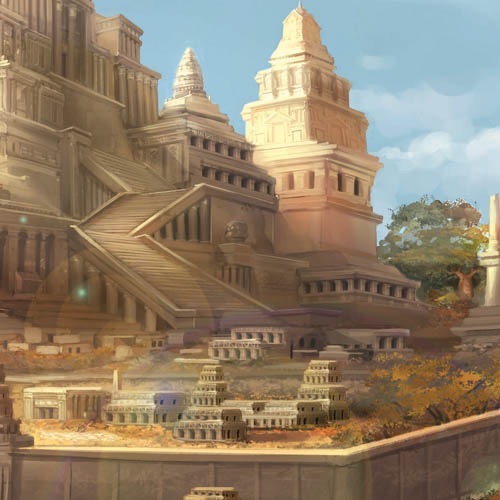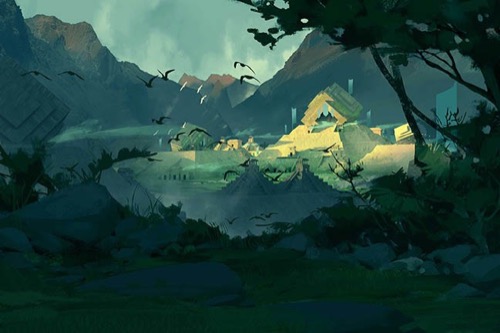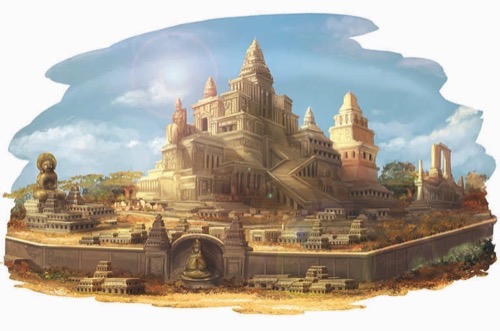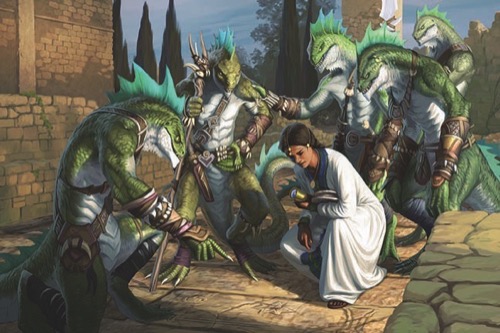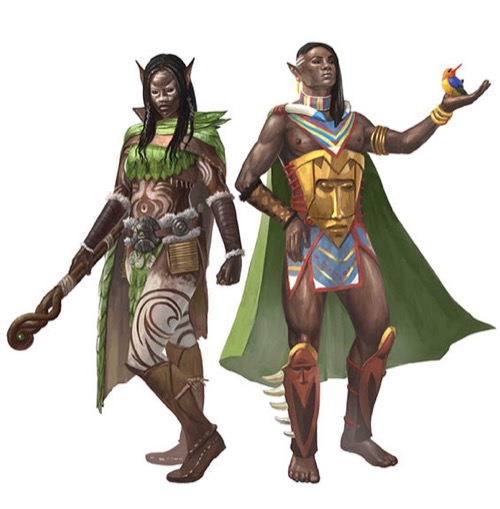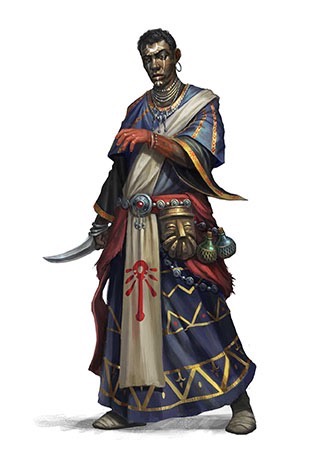Since we first revealed the map of the Age of Lost Omens campaign setting, with its ten meta-regions and updated names for existing locations, fans have been asking for more information about the Mwangi Expanse. Well today I'm happy to be able to grant that wish, with a brief overview of how the setting's iconic jungle has evolved between editions!
One of the key differences between the Mwangi Expanse and other regions of the Age of Lost Omens campaign setting is that it (mostly) lacks nation-states with capitals and well-established borders, instead offering a number of city-states spread throughout a vast wilderness of adventure-filled jungles, savannahs, swamps, and mountains. Whether it's Nantambu, with its ancient magic academy, the Magaambya; Mzali, ruled by the mummified child-god Walkena; or the mercantile pirate port of Bloodcove; each of these political entities is presented with the same level of detail as the nations on the Inner Sea. We took special care to ensure that each one is described from the perspective of a native rather than from the eyes of outlanders coming into the region to explore and research the “lost” civilizations within, and longtime fans of the Mwangi Expanse should appreciate the new point of view for the variety of stories it can inspire in players and GMs alike.
On the Expanse's western coast lie the Sodden Lands—a collective name for the flooded nations of Lirgen and Yamassa, which were destroyed with the Eye of Abendego formed off their shores. No centralized government rules these waterlogged lands, and what antediluvian settlements survive are now mostly ruined spectres of their former glory, overtaken by cannibals, cultists, and monsters. Many Lirgeni refugees and lizardfolk resettled in the Mwangi city of Jaha, and unlike the city's vanished former inhabitants, open the city to visitors who hope to learn from the famed astrologers and work with them to find a way to end the raging hurricane and reclaim their homeland.
South of the Sodden Lands, the former nation of Sargava has undergone incredible change in the last few years. A revolution mounted by the nation's native population overthrew the Chelish colonial government that had ruled for centuries, establishing the new land of Vidrian in Sargava's place. As with all new nations, Vidrian has a long road to stability ahead of it, but its people are hopeful that self-rule will bring about an era of prosperity and innovation. Under the leadership of heroes of the revolution, the ruling council of Anthusis (what used to be Eleder) hopes to establish new trade and military alliances with nations both abroad and in the Expanse, and prevent colonization efforts like that of Sargava from occurring again elsewhere in the Mwangi.
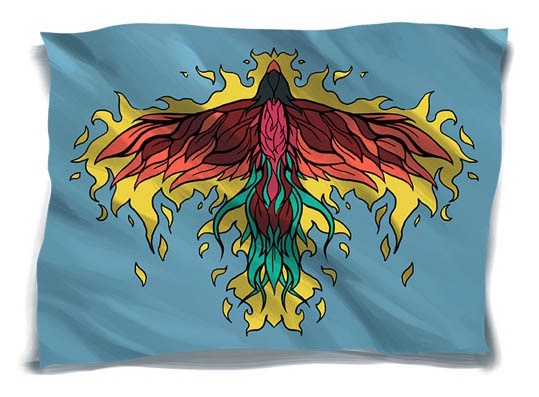
Illustration by Rogier van de Beek
Humans are not the only inhabitants of the Mwangi Expanse, however, and rich societies of elves and orcs are also present. The elves of the Mualijae nations—the Ekujae, Kallijae, and Alijae—occupy most of the Expanse to one degree or another, and though no longer part of a unified nation as they once were, the elves nevertheless exert incredible influence over the entire region. The orcs of Lake Ocata, for their part, have a much more localized reach, but their influence is no less important. In the wake of the Gorilla King's death and the fall of Usaro, it has been these jungle orc tribes who have led the efforts to re-stabilize the region and retake their homeland from the demon-tainted forces that once ruled.
Player characters from or familiar with the Mwangi Expanse can select from eight new backgrounds, such as Bonuwat wavetouched, Bright Lion, and Shory seeker, or acquire a blessed tattoo from the Mwangi orcs. Modern heroes who hope to emulate the powers and traditions of the Ten Magic Warriors and Old-Mage Jatembe may also take the magic warrior archetype.
Be on the lookout for the third and final piece of flash fiction from Pathfinder Tales author Tim Pratt later this week in the Tales of Lost Omens series. Next week, we'll travel back to southern Avistan to the meta-region of Old Cheliax with new fiction from Liane Merciel!
Mark Moreland
Franchise Manager
The Mwangi Expanse
Tuesday, July 9, 2019
